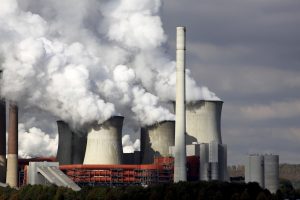An unexpected crack has appeared in the Trump administration’s friendly relationship with the coal mining industry. Specifically, the Department of Energy (DOE) has indicated that it will not grant a fervent request from Murray Energy Corporation to invoke a federal law that provides an emergency exemption from environmental laws for coal-fired power plants. A DOE spokesperson said the department and the White House agreed that the “evidence does not warrant the use of this emergency authority.”
That is not the view of Robert E. Murray, CEO of Murray Energy Corporation. Murray Energy is the country’s largest coal mining company, operating 13 mines and employing about 6,000 people in five states. In letters to President Donald Trump; John D. McEntee III, the president’s special assistant; and DOE Secretary Rick Perry, Murray says that, absent application of the emergency exemption, FirstEnergy Solutions, a subsidiary of FirstEnergy Corporation and an important customer of Murray Energy, and other power providers will be forced into bankruptcy, which, in turn, will push Murray Energy into bankruptcy.
Federal Powers Act
Murray’s letter references several personal discussions with Trump in which, according to Murray, the president told his staff to give Murray what he wanted. The request is that Perry invoke Section 202(c) of the Federal Powers Act. The section states that in the case of war or any emergency that increases the demand for electric energy, the DOE may issue an order requiring continuing generation to serve the public interest and, during the emergency, any noncompliance with federal or state environmental laws or regulations will not be a violation.
Jobs, medical benefits, pensions
As described in Murray’s letters, nonaction on Section 202(c) will result in:
- Elimination of approximately $4 billion of United Mine Workers of America (UMWA) retirement medical benefits for nearly 16,000 individuals;
- Default on nearly $3 billion of unfunded UMWA 1974 pension obligations, bargained for by the federal government, that are supporting over 155,000 UMWA pension benefit recipients;
- Loss of over 100 million tons per year of the domestic thermal coal market;
- Negative impact on nearly 150,000 direct and indirect jobs; and
- Closure of dozens of coal-producing mines and loss of thousands of jobs.
No other option
“Very frankly,” wrote Murray, “no other viable alternative, including increased thermal and coal exports, additional executive orders, or the purchase of stranded coal production by federal, state, or local government, will stop the certain collapse of much of the thermal coal industry, other than immediately invoking section 202(c).”
In his letter, Murray suggests that the DOE and the White House are concerned that use of Section 202(c) will spur lawsuits that the government does not want to engage in. Murray points out that his own legal experts have 95 percent confidence that the courts would not overturn use of the emergency authority.
Plant closures
Trump has often expressed his desire to keep coal miners working as well as the belief that his withdrawal of the United States from the Paris Climate Accord and likely rescission of EPA’s Clean Power Plan will provide economic benefits to the coal mining sector. But the president’s actions so far have made little if any impact on the projected retirement of dozens of coal-fired power plants, a trend that analysts believe is resulting more from the natural gas revolution than from environmental regulations. Murray says that the government should use Section 202(c) to issue a 2-year moratorium on the closure of coal-fired plants.

